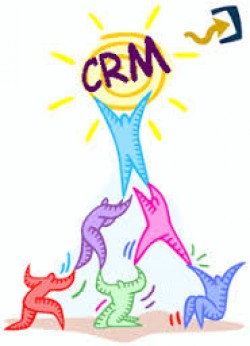

Relationship Marketing: 4 things you need to know
Relationship marketing is a form of marketing that focuses on creating, maintaining and growing business relationships between an organization and its customers. Relationship marketers focus on the quality, longevity, depth and value of the relationship with customers on an individual or personal level. This form of marketing is an offshoot of Customer Relationship Management, commonly referred to as CRM.
1. Relationship marketing versus transactional marketing
The expression relationship marketing is used in contrast with transactional marketing since the objective is not simply to generate a discrete sale of goods or services. It also includes — but is not limited to — building loyalty and optimizing customer value.
In transactional marketing, the marketing communication activities have one simple objective: to close a sale. This vision is the basis of classic direct marketing.
In relationship marketing, the goal is to create, maintain and grow a business relationship between an organization and its customers. And to extend the lifetime of those relationships as long as possible. Armed with that long-term vision, marketers think in terms of customer lifecyle rather than in terms of discrete isolated activities and campaigns. The objective is to move the customer along a continuum, from prospect to customer, from occasional shopper to active patron, from customer to brand ambassador.
2. Targeted media that start a conversation
In both transactional and relationship marketing, marketers use the same targeted media: email, social media, web, direct mail, telesales, text messaging and mobile applications. In both cases, marketers strive to identify each customer and create a profile.
The key difference is in how those media are used, as well as what content is deployed through them. In relationship marketing, communication with the customer goes beyond the use of promotional messages designed to sell, and include informative communication — often in the form of newsletters, video clips, buyers guides and more, designed to help build the marketers credibility and provide a positive experience in order to solidify the customer relationship.
These messages can also help customers make better, more informed choices. Help them find the right product or service based on their behavior, priorities, preferences, characteristics, etc. Marketers can also help customers learn how to use their products appropriately in order to get the most out of them with a [view] to increase customer satisfaction and provide a positive customer experience.
Historically, one of the main characteristics of relationship marketing has been the presence of some form of response. With the advent of social media, the concept of response is being transformed into that of a conversation. Today, customers can interact with marketers in real time and in a very public way. They can share their experience — positive or negative — with others, and directly influence the brand perception and appreciation of others.
3. Identify, know and understand your customers…
However, in relationship marketing, marketers not only want to identify their customers, but also know and understand their behavior. That sometimes means looking at their demographic profile, but most often by examining their behavior and their purchase history.
When the objective is customer acquisition — in which case there is no purchase history to analyze — marketers will focus on a person’s media consumption behavior as well as their interest in the product or service category.
4. … and retain them as long as possible
Customer loyalty is the foundation of relationship marketing. However, that does not mean that a loyalty program, offering incentive in exchange for greater patronage are absolutely necessary.
Loyalty programs are useful in the sense that they allow marketers to identify their customers and to capture transactional data. But if customers are already identified through other means and if we are able to track their purchase behavior, such programs are not essential to the relationship marketing process. Loyalty can also be built through more relevant communication, a positive customer experience and better timing.
Source: http://strategies.ca












یک نظر اضافه کنید
شماره موبایل شما منتشر نخواهد شد.زمینه های مورد نیاز هستند علامت گذاری شده *
امتیاز شما